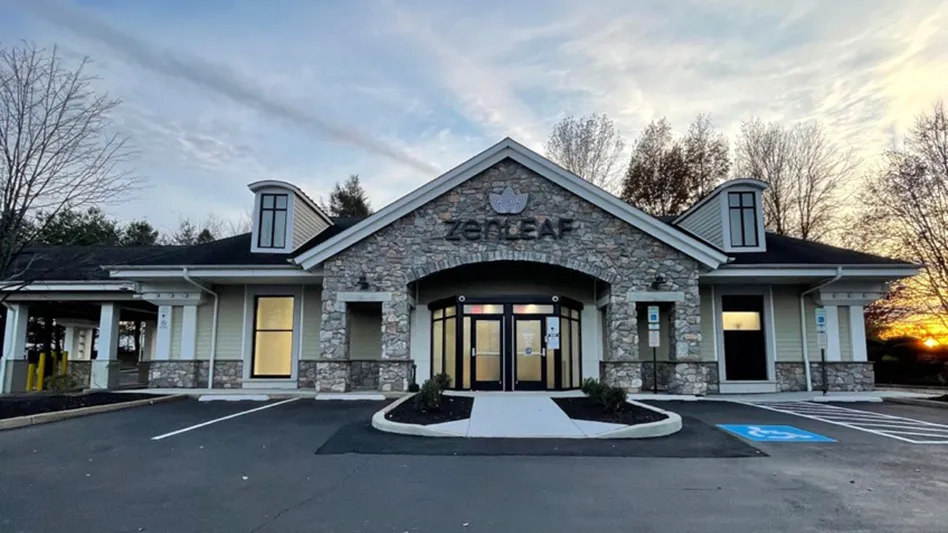
scstatehouse.gov; Adobe Stock
Update: The South Carolina Senate began debating Sen. Tom Davis' Compassionate Care Act Feb. 7 on the chamber floor, and continued that debate Feb. 8, but adjourned without a vote. The Senate is schedule to resume action on the bill at noon Feb. 13.
South Carolina could be the 39th state to legalize medical cannabis after a bill was given legislative priority Feb. 6 for a fast track to the Senate floor.
State senators voted, 26-13, Tuesday on a special order from Majority Leader Shane Massey, R-Edgefield, to expedite consideration of the South Carolina Compassionate Care Act (S. 423) to the full chamber. The special order needed a two-thirds supermajority for the motion to pass, which it received on the dot.
The legislation, sponsored by Sen. Tom Davis, R-Beaufort, previously failed to receive a two-thirds supermajority in a 25-16 vote for a special order just five days earlier.
The #MedicalMarijuana bill was just set for special-order debate in the South Carolina Senate, having received the necessary 2/3rd vote. Debate begins tomorrow afternoon. I’ve got 14 hours’ worth of work to do between now and then to update my floor-debate notes. I’ll be ready. pic.twitter.com/lEF9aybRfj
— Tom Davis (@SenTomDavisSC) February 6, 2024
During Tuesday’s session, Sen. Gerald Malloy, D-Darlington, one of the bill’s 11 co-sponsors, spoke in favor of expediting the legislation to the top of the Senate’s calendar.
“[Davis] has fought for [medical cannabis legalization] in this body for years and years and years, changed his approach, calmed the bill down to some, made it fit with everyone,” Malloy said. “And then, two sessions ago, we passed it.”
The South Carolina Senate did pass a previous version of Davis’ Compassionate Care Act via a 28-15 vote in February 2022, after three weeks of debate that included a marathon of seven floor sessions with consideration of 65-some amendments—one of the most vetted efforts in the nation on a legalization matter.
Despite this, when the legislation reached the House floor in May 2022, Rep. John McCravy, R-Greenwood, challenged the bill’s constitutionality—arguing that it would create a new tax and that revenue-raising bills must originate in the lower chamber. On this technicality, the House voted, 59-55, to table the bill, dealing it a blunt defeat.
Davis stood as a spectator on the House floor that day but did not point fingers despite his own party delivering the blow to his bill.
“We suffered a setback procedurally in the House today,” Davis said following the 2022 bill’s demise. “I can’t cry about it. I can’t pout about it. I can’t come back and lash out and try to hurt other people’s bills. That’s not productive. I just need to find out a way to get this thing on the merits up or down in the House, and that’s what I’m going to be working on.”
Now in his ninth year crafting legislation and advocating for a medical cannabis program, Davis’ latest version of the Compassionate Care Act omits that revenue-raising provision cited by House leaders who blocked the measure in 2022.
In advocating for the special order on Tuesday to bring the legislation to the top of the legislative calendar, Malloy reminded members in the Senate about the technicality from two years prior.
“The Senate has spoken,” he said. “And I would just tell you that there are times that we have to stand as a Senate. That bill left here and went across the hall to the lower chamber to the House. It was something unordinary, maybe extraordinary, that happened. And for the love of this body, understanding that we have different positions is my firm belief that there’s more people that support the bill than not.
“And so, with that, without getting to the substance in general, I respectfully request that we put this bill in special order, pass it through the body, send it back to the House.”
The South Carolina Compassionate Care Act intends to create one of the more restrictive medical cannabis programs in the nation, one where qualified patients would not have access to cannabis in smokeable forms such as flower and prerolls but rather in forms like topicals, tinctures, vaporizers and edibles.
The legislation includes roughly a dozen qualifying conditions, with tight definitions of those conditions, and would require doctors to have in-person relationships with patients, run background checks for a history of substance abuse, and create written treatment plans, among other requirements.
The “debilitating medical conditions” that would qualify patients for access include cancer, multiple sclerosis, epilepsy, glaucoma, post-traumatic stress disorder, Crohn’s disease, sickle cell anemia, ulcerative colitis, cachexia or wasting syndrome, autism, severe nausea, chronic medical conditions causing severe muscle spasms or pain, and terminal illness.
During a 14-day period, qualifying patients would be allowed to purchase no more than 4,000 milligrams of THC in topical form (patches, lotions, creams, ointments), 1,600 milligrams of THC in oral form (oils, tinctures, capsules, edibles), or 8,200 milligrams of THC in oil form for vaporization. Physicians could prescribe various allowable amounts to individual patients.
In addition, medical cannabis would be dispensed through “therapeutic cannabis pharmacies,” rather than traditional dispensaries, and would require those retail facilities to always have a state-approved pharmacist on-site.
The state’s Department of Health and Environmental Control along with the Board of Pharmacy would be responsible for establishing rules and regulations as well as licensing industry participants, while a Medical Cannabis Advisory Board would be tasked with overseeing the marketplace.
Also, local governments would be able to prohibit medical cannabis establishments from operating within their jurisdictions or enact ordinances to regulate the time, place, manner and number of medical cannabis establishments in their locality.
In past years, Davis said the program would be one of the most conservative in the nation with an intent to let doctors “do what they think is in their patient’s best interest.”
The South Carolina Senate’s floor consideration for this bill could commence as soon as its Feb. 7 afternoon session.
Latest from Cannabis Business Times
- Key Takeaways From USDA's 2024 Hemp Report
- Cannabis Rescheduling: Where Do We Go From Here?
- Verano Opens MÜV Haines City, Company’s 75th Florida Dispensary
- Ascend Wellness Holdings Reports $142.4M Net Revenue for Q1 2024
- Trulieve Reports $298M in Revenue for 1st Quarter 2024
- SNDL Reports 1st Quarter 2024 Financial, Operational Results
- Leading Cannabis Brand STIIIZY Expands Retail Presence With Fresno Location Opening Saturday, May 11
- The Cannabist Co. Reports 1st Quarter 2024 Results





